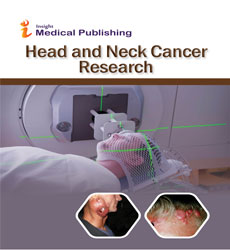Investigation of relevant factors prognosis on RCRS post-Surgery
Abusaleh Muneif
Saint Mary and Elizabeth medical center (Saint Mary Campus), Chicago, USA
Published Date: 2022-07-22Abstract
CRS is the most common naso-sinuses mucosal inflammatory disease, with an incidence rate of 8- 15%, and can seriously affect the QOL in patients and impact the lower respiratory tract inflammatory diseases, it is the contemporary focused attention and research topic by Rhinology academy.
With functional endoscopic sinus surgery and the progress of standardization of combined therapy, the cure rate is near or at 90% but still, 10% of patients are dissatisfied with treatment, thus the treatment of CRS becomes difficult, and these patients were referred to refractory CRS, although the main means through standardized operation and comprehensive drug treatment, patients are still an accompanied by persistent symptoms and signs, rather than simply acute exacerbation of CRS.
Refractory CRS is a complexity of risk factors and other multifactorial involvement such as allergy, super-antigen, bacterial biofilm, chronic osteitis Etc, currently focusing on international rhinology academic research content. The main issue of research is a bacterial biofilm, allergy, and inflammatory cytokines, these three main aspects exist in patients with RCRS and may explore related factors and mechanisms.
Open Access Journals
- Aquaculture & Veterinary Science
- Chemistry & Chemical Sciences
- Clinical Sciences
- Engineering
- General Science
- Genetics & Molecular Biology
- Health Care & Nursing
- Immunology & Microbiology
- Materials Science
- Mathematics & Physics
- Medical Sciences
- Neurology & Psychiatry
- Oncology & Cancer Science
- Pharmaceutical Sciences
